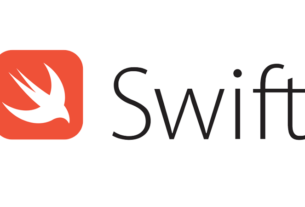Question or problem in the Swift programming language:
Hello I am wondering how do we achieve this?
In UITableView we could simply do
tableView.tableHeaderView = SomeView;
or
tableView.tableFooterView = SomeView;
But I am wondering how to do the same for UICollectionView.
P.S.: Not Section Header and Footer
How to solve the problem:
Solution 1:
Try it…
First register class in ViewDidLoad
registerClass(myFooterViewClass, forSupplementaryViewOfKind: UICollectionElementKindSectionFooter, withReuseIdentifier: "Footer")
then use this method
override func collectionView(collectionView: UICollectionView, viewForSupplementaryElementOfKind kind: String, atIndexPath indexPath: NSIndexPath) -> UICollectionReusableView {
switch kind {
case UICollectionElementKindSectionHeader:
let header = collectionView.dequeueReusableSupplementaryViewOfKind(kind, withReuseIdentifier: "Header", forIndexPath: indexPath) as! UICollectionReusableView
header = SomeView
return header
case UICollectionElementKindSectionFooter:
let footer = collectionView.dequeueReusableSupplementaryViewOfKind(kind, withReuseIdentifier: "Footer", forIndexPath: indexPath) as! UICollectionReusableView
footer= SomeView
return footer
default:
print("anything")
}
}
I hope it help…
Solution 2:
UITableView have global headers tableHeaderView and tableFooterView, but UICollectionView does not have global headers so you’ll have to use the section headers.
Solution 3:
user section Header and footer and create a class for that, for example, headerFooter: UICollectionReusableView then write code for what you want in this class then in viewcontroller just write this :
func collectionView(_ collectionView: UICollectionView, viewForSupplementaryElementOfKind kind: String, at indexPath: IndexPath) -> UICollectionReusableView {
let sectionView = collectionView.dequeueReusableSupplementaryView(ofKind: kind, withReuseIdentifier: "FooterView", for: indexPath) as! CollectionReusableView
return sectionView
}
For View Class :
class CollectionReusableView: UICollectionReusableView {
@IBAction func ButtonClick(_ sender: Any) {
print("Click 1st")
}
@IBAction func ButtonClick2(_ sender: Any) {
print("Click 2nd")
}
}
Solution 4:
The easiest way – is to set collectionView.contentInset.top = height
and add view manually to collectionView:
let header = UIView(frame: CGRect(x: 0, y: -height, width: collectionView.frame.width, height: height)) // ... customise view, add subviews collectionView.addSubview(header)
Note. you can’t use autolayout to arrange header in the collection view. So use good old manual layout. And when collectionView changes frame – you should reset header’s width
Solution 5:
I see.
It’s very simple,like this.
CGFloat headerHeight = 100;
UIView *headerView = ({
UIView *view = [[UIView alloc] init];
view.frame = CGRectMake(0, -headerHeight, collectionView.frame.size.width,headerHeight);
view;
});
[collectionView addSubview:headerView];
CGFloat footerHeight = 100;
UIView *footerView = ({
UIView *view = [[UIView alloc] init];
view.frame = CGRectMake(0, collectionView.frame.size.height, collectionView.frame.size.width, footerHeight);
view;
});
self.footerView = footerView;
[collectionView addSubview:footerView];
collectionView.contentInset = UIEdgeInsetsMake(headerHeight, 0, footerHeight, 0);
and add this
- (void)scrollViewDidScroll:(UIScrollView *)scrollView {
if (scrollView.contentSize.height > scrollView.frame.size.height) {
CGRect frame = self.footerView.frame;
frame.origin.y = scrollView.contentSize.height;
self.footerView.frame = frame;
}
}



